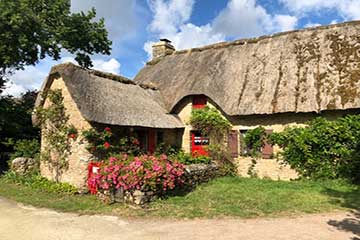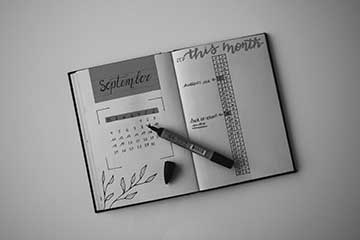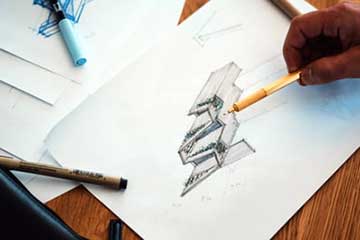How to Improve Fire Safety for Home
Are you a homeowner or a tenant? It does not matter because fire safety in your home is an incredible important topic and should be improved if is not done already. Here is our guide on how can you prevent house fires by simply following our home fire safety checklist.
To give you a little bit of perspective, on average in England, each year are more than 30,000 dwelling fires reported from which more than 200 have fire-related fatalities, as per Home Office report.
In order to protect yourself, you can easily follow these simple tips to prevent house fires occurring, thus keeping your family safe.
One of the most important steps in preventing house fires is to regularly check your electrical appliances. Make sure to follow the manufacturer’s guidelines and check how and where your appliances are plugged in.
Avoid overloading them, as this can lead to overheating and fire hazards. Faulty electrics cause more than 7,000 house fires every year in the UK, so it’s essential to inspect them regularly. (source: Home Office)
This article will cover:
- Check Regularly your Electrical Appliances
- Check Regularly your Smoke Alarms
- Store Safely any High Inflammable Substances
- Check your Chimney
- Fit Carbon Monoxide Detectors
- Get Familiar with an Escape Route
- Invest in Fire Safety Equipment and Arrange a Fire Safety Check
- Other Tips for Your Fire Safety Checklist
Another easy step to improve your home fire safety is to fit smoke alarms and regularly check that they are working properly. Make sure that your smoke alarms conform to British Standard 5446, Part 1 (BS 5446-1). A working smoke alarm can save your life in case of a fire.
If you have small children, is highly recommended that you keep any chemicals and/or high inflammable substances in a locked, safe place, out of reach of the young ones. Also, you should cover sockets and install cupboard and appliances locks as soon as possible.
Need A Free Estimate?
- Fully qualified RICS professional surveyor
- Affordable, fast and thorough surveys
- Clear, precise and easy to understand report
If your newly bought property has a chimney you should check if it is not blocked before you are lighting the fire. Also, ensure that has been swept recently and if has been maintain in a good condition.
This applies to any chimney, even are used for open fires or used as flues for gas fires. Normally, receipts will be provided by the seller to show that a recent swept has been carried out, if not, arrange one before you take advantage of this house feature.
Even if is not a fire safety prevention per say, a CO detector should be fitted in any property which has a gas supply or a chimney. Every year, more than 50 people die from carbon monoxide poisoning due to faulty heating appliance.
CO detectors should comply with BS 7860 and if you are in doubt, always look for a professional for advice or for installation.
A good practice, is to setup an escape route in the case of fire. This way you prepare yourself and your family by knowing the best way to leave your home in an emergency situation.
If you are a flat owner or tenant, make sure get familiar with the building fire procedures and escape routes. Check your lease or with your solicitor who is in charge of fire fighting equipment inspections or communal alarms operations.
If you did not invested before in a fire blanket or an extinguisher, now is the time to do it, especially if you are living in a HMO (houses in multiple occupation). Is important that you know exactly how to use each of these devices because they can cause injury if are used inadequately.
Also, if you are unsure, many Fire and Rescue Services offer a fire safety risk assessment for free, an invaluable tool that could end up saving your life or a family member’s life.
- Keep flammable items away from heat sources: Items like curtains, paper, and cleaning supplies should be kept away from heat sources like stoves, heaters, and candles to reduce the risk of fire.
- Keep an eye on cooking: Cooking is one of the leading causes of house fires, so be sure to keep a close eye on what you’re cooking and never leave the stove or oven unattended.
- Keep matches and lighters out of reach of children: Children should be taught about the dangers of fire and should never be left alone with matches or lighters.
- Keep a fire extinguisher in the kitchen: It’s a good idea to have a fire extinguisher in the kitchen in case of a cooking fire. Make sure it is easily accessible and that everyone in the house knows how to use it.
- Do not smoke inside the house : It’s important to not smoke inside the house as it is one of the main causes of fire in the home.
- Unplugging appliances when not in use: Unplugging appliances when not in use, reduces the risk of fire, especially when they are close to curtains or bedding.
- Clean the lint filter in your dryer: Cleaning the lint filter in your dryer after each use can prevent a fire from starting.
- Keep your fire alarm and smoke detector batteries new: Changing the batteries in your fire alarm and smoke detector regularly can help ensure that they work properly in case of a fire.
We hope that our home fire hazard checklist will keep you on top of things and help you improve your home fire safety. And remember, if you are not sure or comfortable doing some of these tasks, hire a professional or ask for a second opinion.
Written by Danil P.
16th Aug 2021 (Last updated on 12th Jan 2023)
6 minute read





